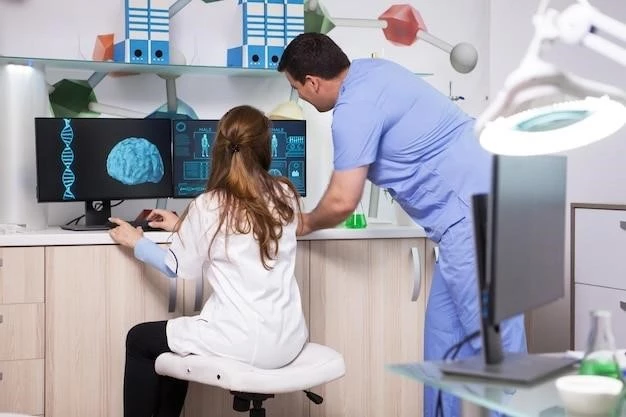Early signs can include accelerated growth‚ enlarged organs‚ and vision problems․
Common Symptoms
Seek medical advice if noticing abnormal body growth or unusual physical changes to diagnose cerebral gigantism early․
Routine tests‚ imaging‚ and hormone level checks are vital for an accurate diagnosis․
Diagnosis Process
Consult a specialist for a thorough evaluation including physical exams‚ hormone tests‚ and imaging studies like MRI or CT scans․ Early detection is crucial for effective management․ Be prepared for follow-up appointments to monitor progress and adjust treatment plans if necessary․
Non-Surgical Treatments

Non-surgical options for jaw cysts may include monitoring the cyst through regular check-ups‚ medications to manage symptoms‚ and lifestyle changes like avoiding hard foods․ Consult your healthcare provider for personalized recommendations and follow-up care․
Surgical Treatment
When surgical intervention is necessary for jaw cysts‚ procedures like cyst removal or marsupialization may be recommended․ Follow post-operative instructions diligently‚ attend follow-up appointments‚ and report any unusual symptoms to your healthcare team promptly to aid in a smooth recovery process․
Causes
Cerebral Gigantism can be linked to genetic mutations affecting growth hormones or certain brain regions․ Environmental factors and family history may also contribute․ Understanding the root cause is key to developing a comprehensive treatment plan․ Consult with medical professionals for personalized guidance․
Risk Factors
Factors that may increase the risk of developing Cerebral Gigantism include family history of genetic conditions‚ exposure to certain toxins‚ and disorders affecting the endocrine system․ Being aware of these risk factors can aid in prevention and early detection․ Regular screenings and genetic counseling can be beneficial․
Types of Surgeries
Common surgical procedures for jaw cysts removal include enucleation‚ decompression‚ and marsupialization․ Different techniques may be utilized based on the size and location of the cyst․ Discuss with your healthcare provider to determine the most suitable approach for your condition․
Recovery Process
After jaw cysts surgery‚ follow post-operative care instructions diligently․ Expect some swelling and discomfort initially‚ but these should gradually improve․ Attend follow-up appointments as scheduled‚ maintain good oral hygiene‚ and adhere to any dietary restrictions to support optimal healing․ Contact your healthcare provider if you have any concerns during your recovery․
Potential Complications
Complications of Cerebral Gigantism may include vision impairments‚ cardiovascular issues‚ joint problems‚ and emotional challenges․ Regular monitoring and consistent care can help manage these complications effectively․ Consult with your healthcare team for individualized strategies to address any concerns that may arise․
Management Strategies
Effective management of complications in Cerebral Gigantism involves a multidisciplinary approach․ This may include medication to control hormone levels‚ regular screenings‚ physical therapy‚ and psychological support․ Stay informed about your condition‚ communicate openly with your healthcare providers‚ and follow the recommended treatment plan diligently to optimize your health outcomes․
Recovery Timeline
The recovery timeline after jaw cysts surgery varies but typically involves initial healing within a few weeks․ Full recovery may take several months․ Follow your healthcare provider’s post-operative instructions‚ attend follow-up appointments‚ and gradually resume normal activities as guided․ Contact your healthcare team if you have any concerns during your recovery journey․
Prognosis Factors
The prognosis after jaw cysts surgery depends on factors like the size and location of the cyst‚ overall health‚ and adherence to post-operative care․ Following your healthcare provider’s recommendations‚ attending follow-up appointments‚ and maintaining good oral hygiene can positively influence your prognosis․ Be proactive in your recovery process for a successful outcome․
Current Research Areas
Ongoing research in Cerebral Gigantism focuses on identifying genetic markers‚ exploring new treatment options‚ and understanding the long-term effects on patients․ Stay informed about clinical trials‚ engage with healthcare professionals‚ and consider participating in research studies to contribute to advancements in the field and potentially access innovative therapies․
Future Directions
Future research in Cerebral Gigantism aims to enhance early detection methods‚ develop targeted therapies‚ and improve overall patient outcomes․ Collaborations between researchers‚ clinicians‚ and affected individuals play a crucial role in advancing knowledge and treatment options․ Stay updated on emerging developments and participate in discussions to shape the future of Cerebral Gigantism management․
Dietary Guidelines
For patients with jaw cysts‚ focus on soft‚ easy-to-chew foods to prevent discomfort․ Ensure adequate hydration and incorporate nutrient-rich options like fruits and vegetables․ Limit spicy or acidic foods that may irritate the surgical site․ Consult with a dietitian for personalized dietary recommendations tailored to your recovery needs․
Physical Activity
Engage in light physical activities like walking or gentle stretching post-surgery to promote circulation and aid in the healing process․ Avoid strenuous exercises that may strain the jaw area․ Gradually increase activity levels as advised by your healthcare provider to support overall well-being while ensuring a safe recovery from jaw cysts surgery․
Emotional Support
Seek emotional support from loved ones‚ counseling‚ or support groups to navigate the emotional challenges that may arise during your jaw cysts treatment journey․ Openly communicate your feelings‚ practice relaxation techniques‚ and prioritize self-care․ Remember‚ managing your emotional well-being is as important as physical recovery․ Don’t hesitate to reach out for help when needed․
